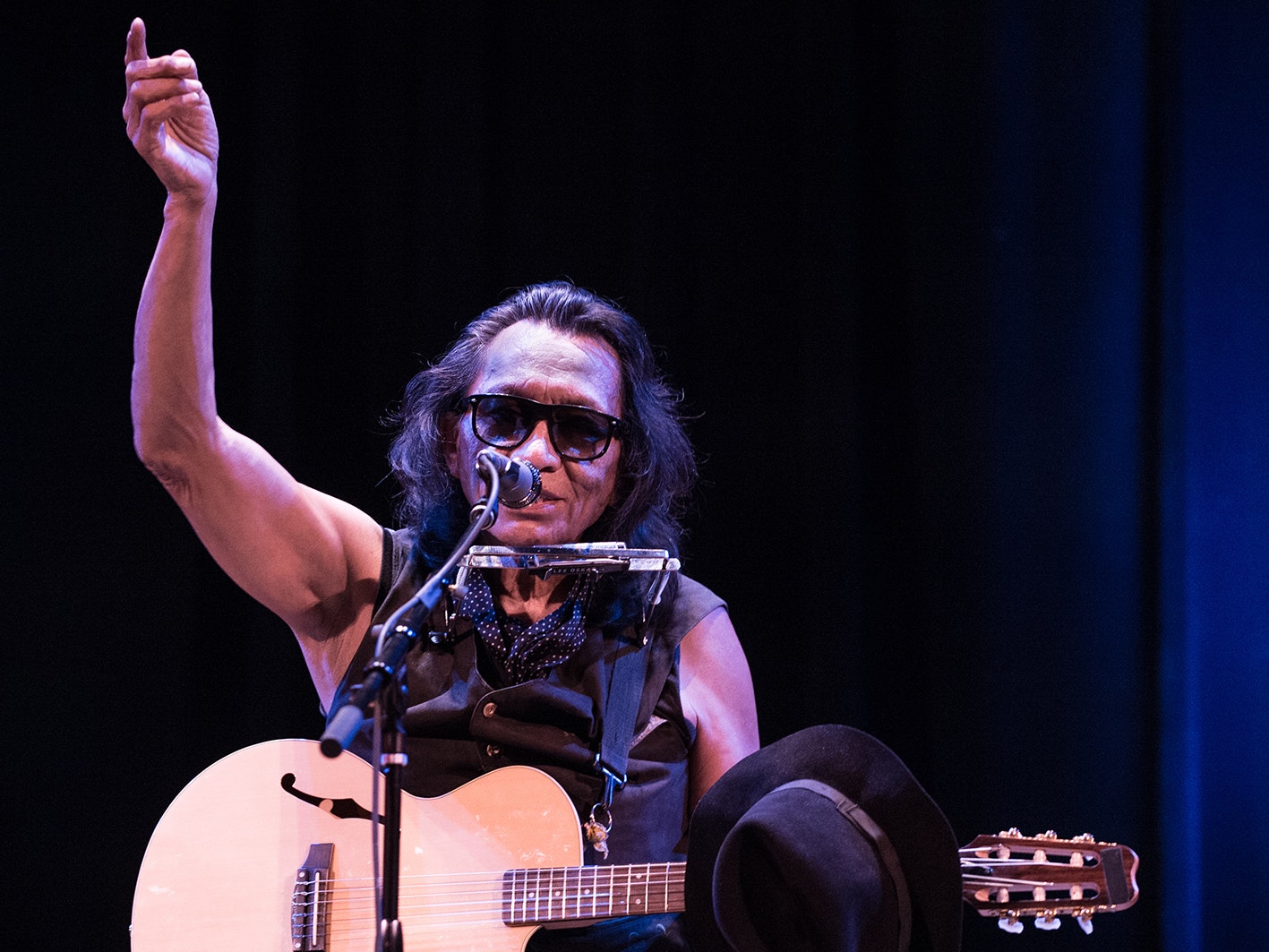Chatting with Sixto Rodriguez
‘Searching for Sugar Man’ Artist Talks Music, Politics, and Life in Detroit

The legendary artist Sixto Rodriguez (whose life story was chronicled in the compelling, Oscar-winning 2012 documentary Searching for Sugar Man) will be returning to Santa Barbara for a performance Tuesday, August 21, at The Granada Theatre. Rodriguez’s intriguing musical trajectory began with the musician being virtually unknown in the States for more than 40 years — after his two early ’70s avant-garde albums Cold Fact and Coming from Reality failed to chart. Meanwhile, unbeknownst to him, his records had found their way to South Africa, where his songs helped inspire anti-apartheid activists and he was considered a superstar.
Since the documentary’s release, Rodriguez has belatedly been hailed globally as a major talent and played in more than 17 countries and at both the Glastonbury and Coachella festivals. Describing himself as “musical-political,” Rodriguez pens lyrics that often address the injustices faced by the inner-city poor, and, as an activist, he has run for public office several times in Detroit. Rodriguez was awarded a doctor of humane letters in 2013 from his alma mater, Wayne State University, in addition to the bachelor’s in philosophy he earned there in 1981.
I recently spoke over the phone with Rodriguez, who was in good spirits, chilling in his Detroit home with band members and a few friends, including the counterculture icon John Sinclair.
Did you come from a musical family? I’m Mexican, and we do a lot of singing, and it was my brother’s guitar that I’d practice on, and he would say, “Who’s that playing my guitar?” [Laughs.] I played at 16, and I’ve done music since then. I play by ear — I’m self-taught. And so everything I do is through that technique.
Did you draw inspiration from fellow musicians back in the ’60s? “Rocky Raccoon” by [John] Lennon [and Paul McCartney] is a favorite of mine to listen to because [they’re] capturing all these individual things in the songs very cleverly.
How did you develop your distinctive style of playing guitar? You just play. Keith Richards said, “The more you play, the better you get!” You just trip out into it. At the shows, they’re out to have a good time, and I am, too. So that’s half the battle.
“Cause” and “Crucify Your Mind” completely floored me on first listen, both because of your lyrics and your vocal delivery. Tell me about those songs’ origins. “Cause” I wrote real fast, because we were [recording the album Coming from Reality in 1970] in London, England, and I had to write something because other songs got deleted. I had fun with it. … Was “Crucify Your Mind” dedicated to anybody? No, it was a generalization. “A Most Disgusting Song” is like that, too.
I’ve read that you might work with record producer Steve Rowland again. We’re gonna see [Rowland] in Palm Springs [during the tour] just before we come back to Detroit. We’re gonna go in the studio, and I have other talents coming with me.
Were you inspired to stand up to inequality by Martin Luther King Jr., Malcolm X, Che Guevara, Cesar Chavez, or Bobby Kennedy during the ’60s? Oh, yeah! … Detroit [was founded in] 1701 —I think we could be further along on the path than this. Wayne County Police evicted a lady with three kids in winter, and it creates homeless that way. That’s not civilization. [Jean-Jacques] Rousseau says we have a social contract … and so many people pay into Social Security and never receive any money.
4•1•1
Rodriguez plays Tuesday, August 21, 7:30 p.m., at The Granada Theatre (1214 State St.). Call (805) 899-2222 or see granadasb.org.



